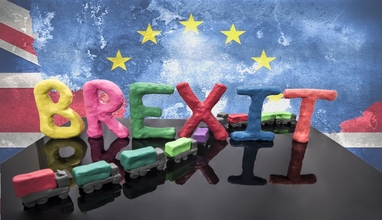Payment Methods Germans Trust: Legal Considerations for PayPal, Klarna, SEPA, and More

Germany is one of Europe’s largest e-commerce markets, and understanding which payment methods German consumers prefer is crucial for online retailers. However, beyond customer preferences, merchants must also navigate a complex legal framework that governs payment processing, data protection, and consumer rights. This article explains the most trusted payment options in Germany, along with the key legal considerations you need to keep in mind for 2025.
1. PayPal: Popular and Convenient
PayPal remains one of the most popular payment methods among German consumers due to its ease of use and buyer protection policies. It allows customers to pay securely without sharing sensitive bank details directly with merchants. From a legal standpoint, merchants must ensure that their PayPal integration complies with the Payment Services Directive 2 (PSD2), which mandates strong customer authentication (SCA) for online payments. PayPal typically handles this on its platform, but it is important to verify that your checkout process meets these standards.
2. Klarna: Flexible Payment Solutions
Klarna has gained tremendous popularity in Germany by offering buy-now-pay-later options, installment plans, and deferred payments. These flexible options appeal to younger consumers and those who prefer spreading payments over time. Legal compliance for Klarna sellers includes ensuring transparent communication of payment terms and costs, as required by the German Civil Code (BGB). Merchants must provide clear information on interest rates, fees, and payment schedules. Moreover, Klarna handles the credit risk assessment, but merchants are responsible for proper data handling and privacy compliance when collecting customer information.
3. SEPA Direct Debit: Trusted Bank Transfers
The Single Euro Payments Area (SEPA) direct debit is widely used in Germany, especially for recurring payments such as subscriptions. It enables merchants to withdraw payments directly from the customer’s bank account, making it convenient and cost-effective. Legally, merchants must obtain a signed SEPA mandate from the customer authorizing the direct debit. The mandate ensures the customer's consent and provides protection against unauthorized transactions. Additionally, merchants must comply with the EU’s Payment Services Directive (PSD2) regarding authentication and secure data transmission.
4. Other Popular Payment Methods
Besides PayPal, Klarna, and SEPA, German consumers also trust other methods such as credit and debit cards, SOFORT banking, and invoice payments. SOFORT is an online banking payment method popular in Germany that requires merchants to implement secure redirect protocols and comply with PSD2 for authentication. Invoice payments remain common, but merchants must clearly communicate payment terms, deadlines, and late fees according to German consumer protection laws.
5. Data Protection and Consumer Rights
When handling payment data, merchants must ensure compliance with the General Data Protection Regulation (GDPR). This means implementing strict security measures to protect personal and financial information and providing transparent privacy policies. Consumers in Germany also enjoy strong rights related to payment disputes, refunds, and cancellations. Merchants must have clear procedures in place to handle chargebacks, complaints, and comply with the 14-day right of withdrawal applicable to many purchases.
6. Platform and Marketplace Requirements
If you sell through marketplaces like Amazon.de or eBay Germany, you must adhere to their specific payment compliance rules. These often include mandatory support for certain payment methods, documentation of transaction authenticity, and adherence to refund policies.
Conclusion: Combining Trust and Compliance for Success
Offering payment methods trusted by German consumers is essential for building customer confidence and boosting sales. However, legal compliance is equally critical to avoid fines, disputes, and reputational damage.
- By understanding the legal framework around PayPal, Klarna, SEPA, and other popular methods, merchants can create a seamless and secure payment experience that respects consumer rights and protects their business.
- In 2025, integrating trusted payment options with full legal compliance isn’t just a requirement—it’s a competitive advantage in Germany’s demanding e-commerce market.
Hits: 7997 | Leave a comment








 Rules for EU_m.jpg)









